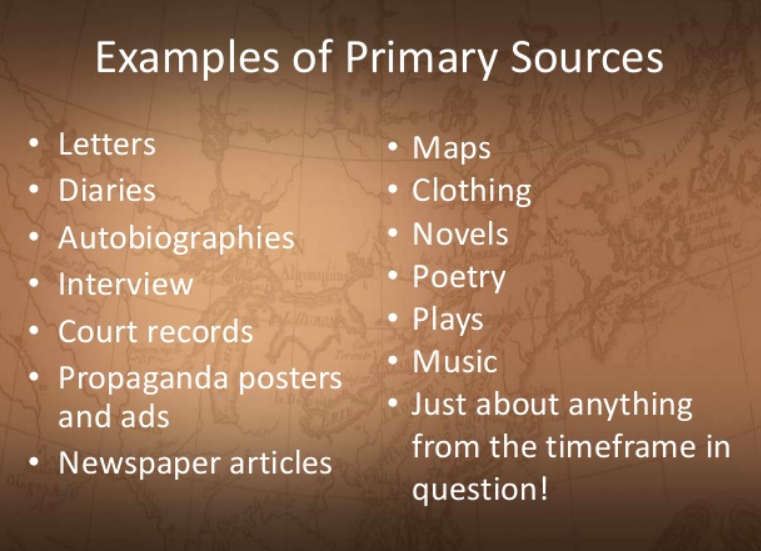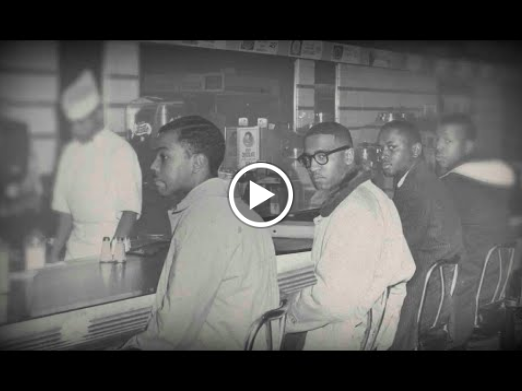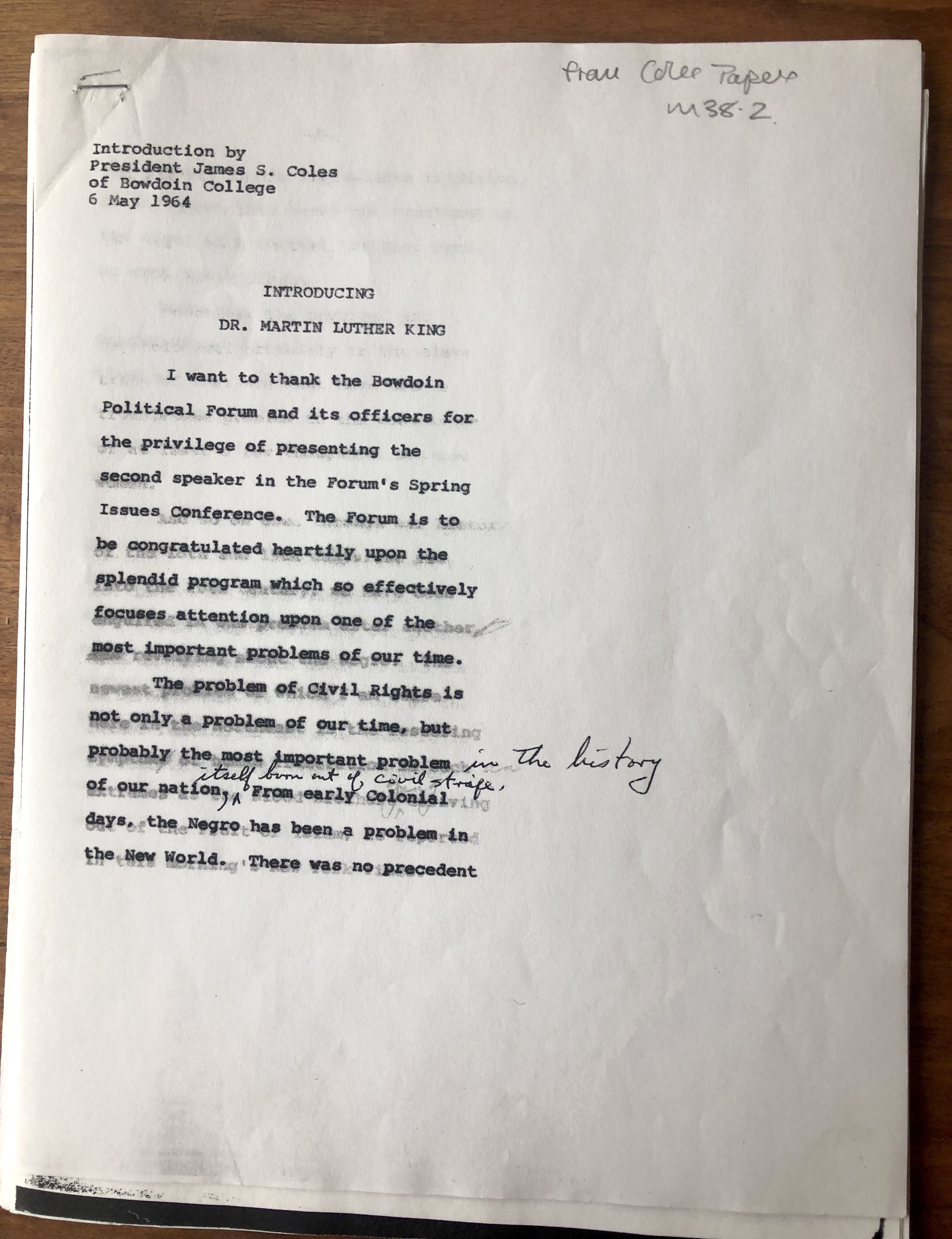The Power of using Primary Sources when Creating Podcasts on the Civil Rights Movement
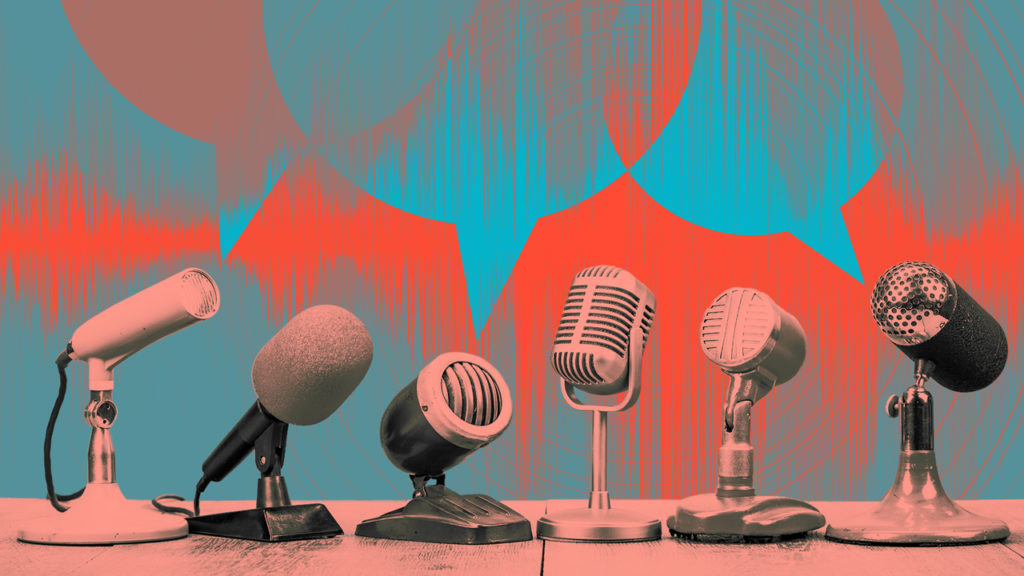
The Power of using Primary Sources when Creating Podcasts of the Civil Rights Movement
What are Primary Sources?
Primary Sources are original documents, images, artwork, or
artifacts created during the time period you are studying. Primary
Sources give us greater understanding of historical events because
they are original, first-hand accounts given by people living during
the time period.
Secondary Sources are created after the event has taken place by someone who did not experience first-hand or participate in the events you’re researching.
What are some examples of Primary Sources?
Primary Sources bring History to Life!
Image Inferences: A Picture Tells a Story
When analyzing civil rights era photos as primary documents you can make inferences about what was happening at that time but it’s Research that will bring the photos and other primary source documents to life and make your podcasts fascinating!
What is an Inference?
An inference is a conclusion reached after examining evidence and making a reasonable or educated guess. What inferences can you make about this photo? Ask yourself the questions a an investigative reporter or detective asks: Who What When Where Why and How? What do YOU think is happening in this photo?
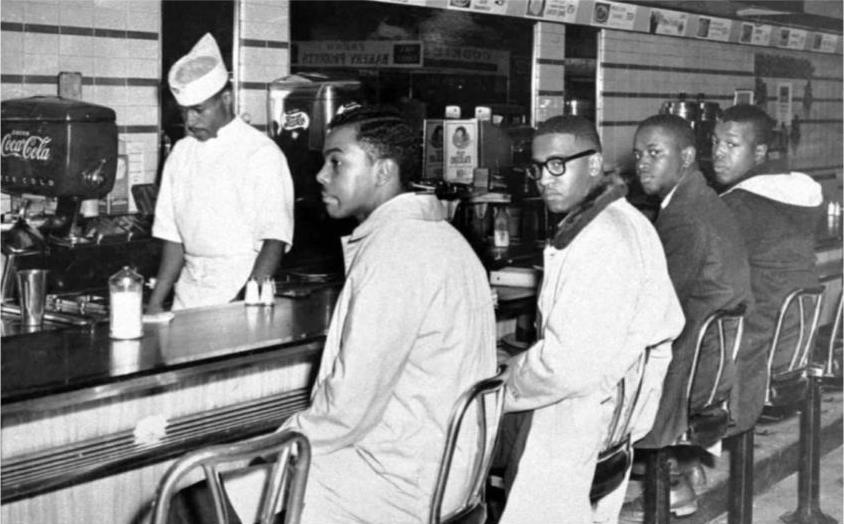
Archives & Resources for Civil Rights Era Research!
What’s an Archives?
“An archives is a place where people can go to gather firsthand facts, data, and evidence from letters, reports, notes, memos, photographs, and other primary sources.
The National Archives is the U.S. Government’s collection of documents that records important events in American history. The National Archives and Records Administration (NARA) is the Government agency that preserves and maintains these materials and makes them available for research.” ~ U.S. National Archives
Bowdoin College Special Collections & Archives
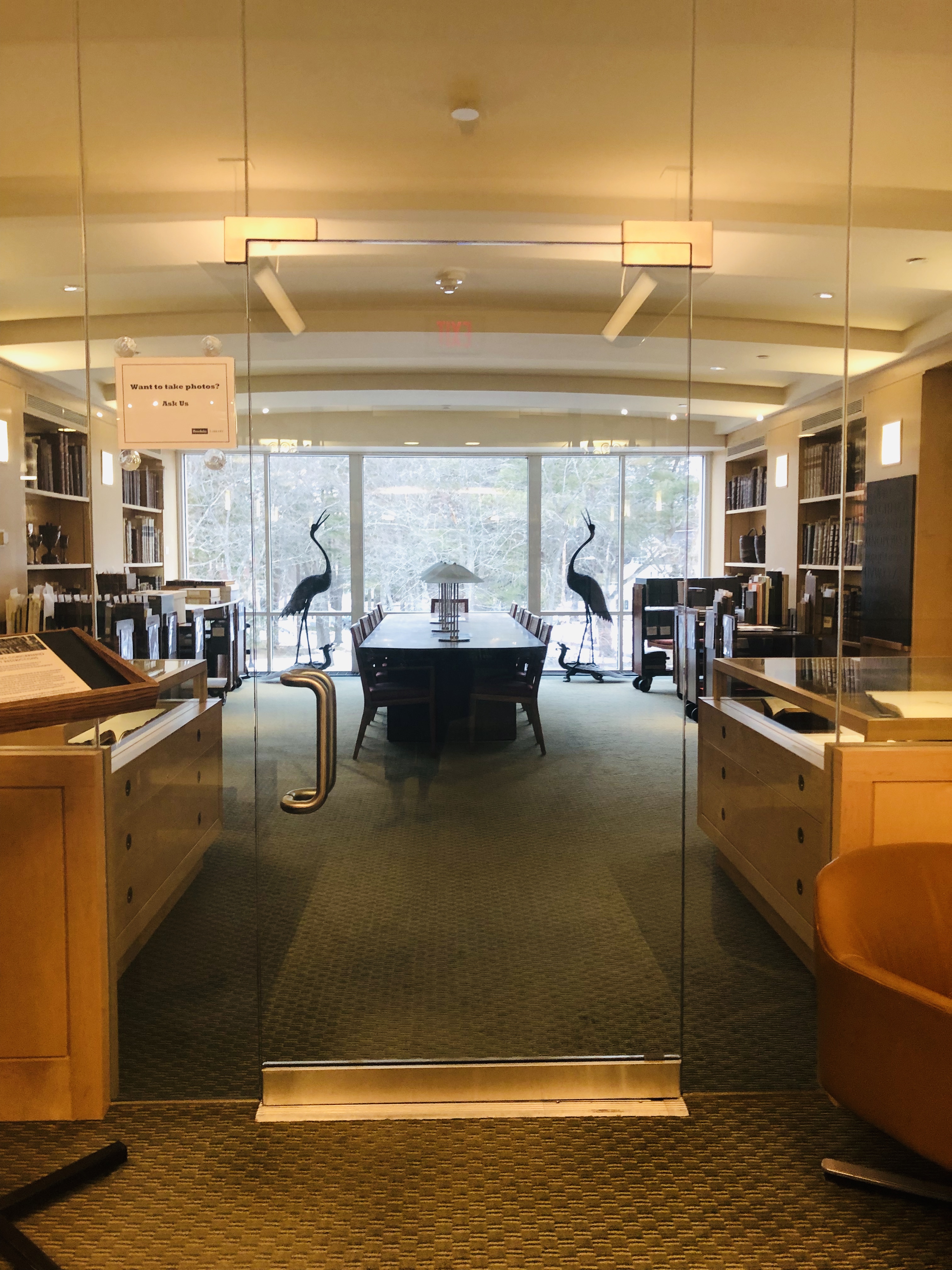
Special Collections & Archives at Bowdoin College Library, housing primary sources on Martin Luther King’s visit to Bowdoin College in 1964.
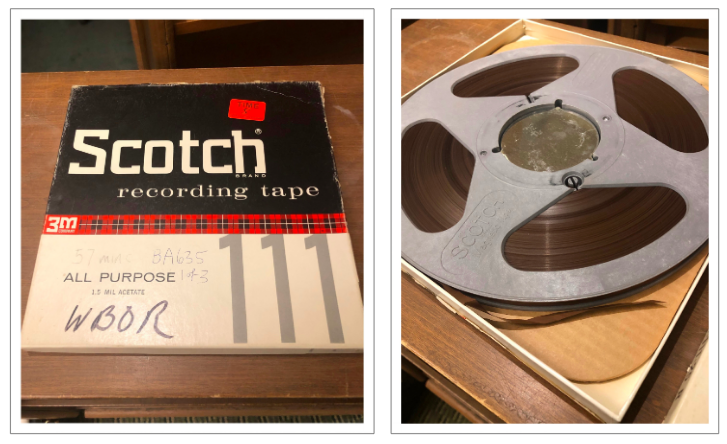
Listen to this recording of Martin Luther King Jr.’s speech at First Parish Church in Brunswick during his visit to Bowdoin College in 1964.
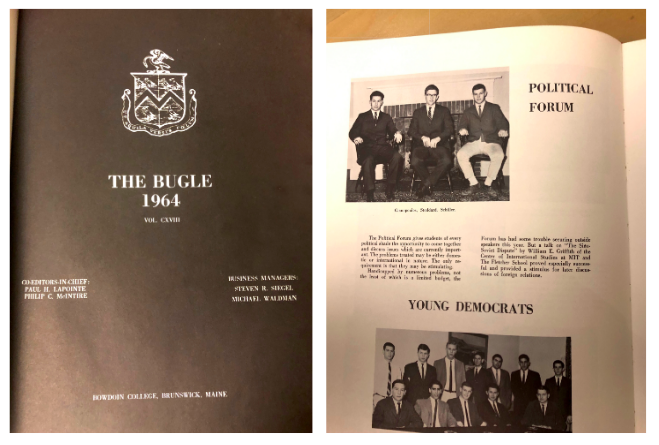
The Bowdoin College Political Forum which sponsored the talk by Martin Luther King Jr.
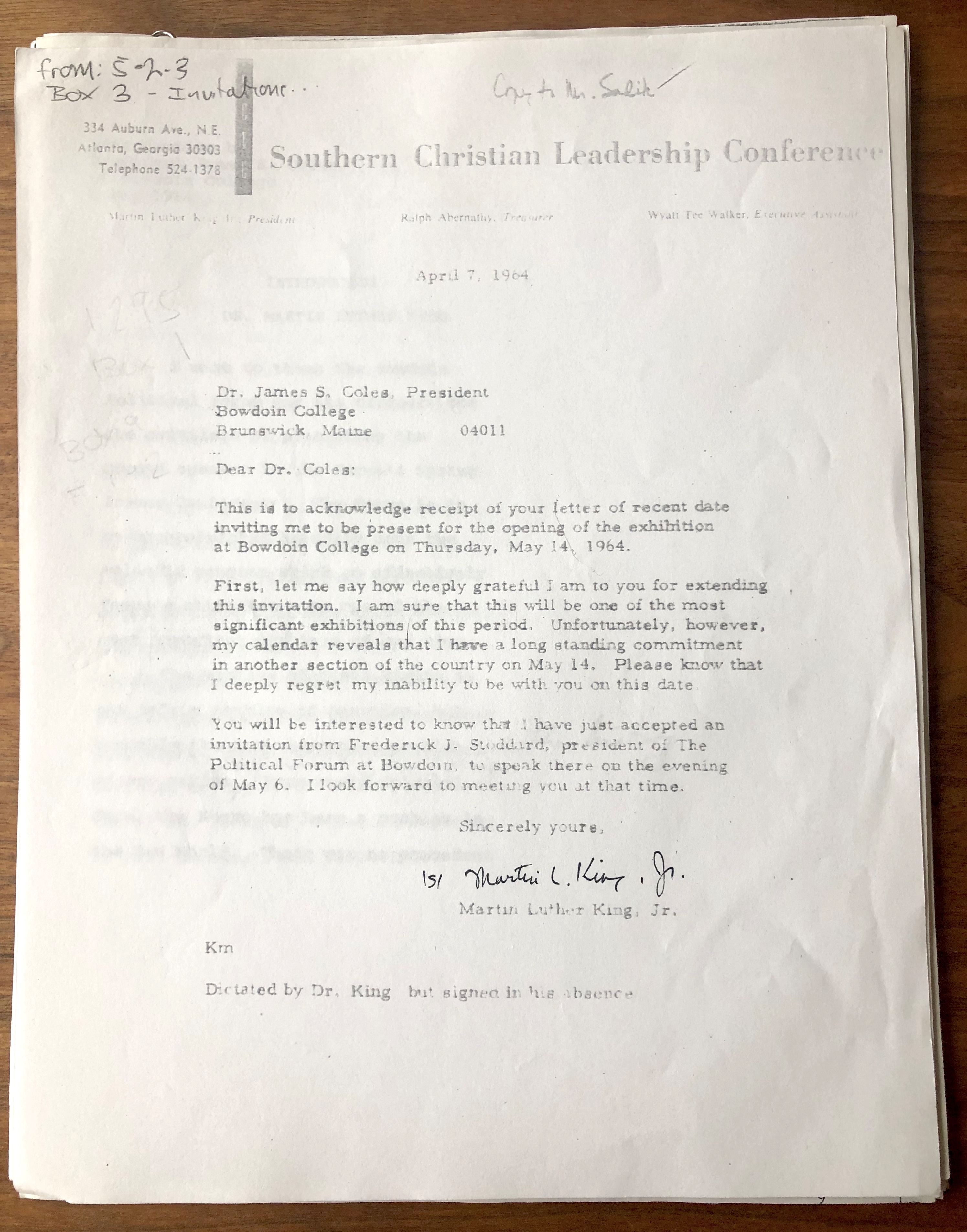
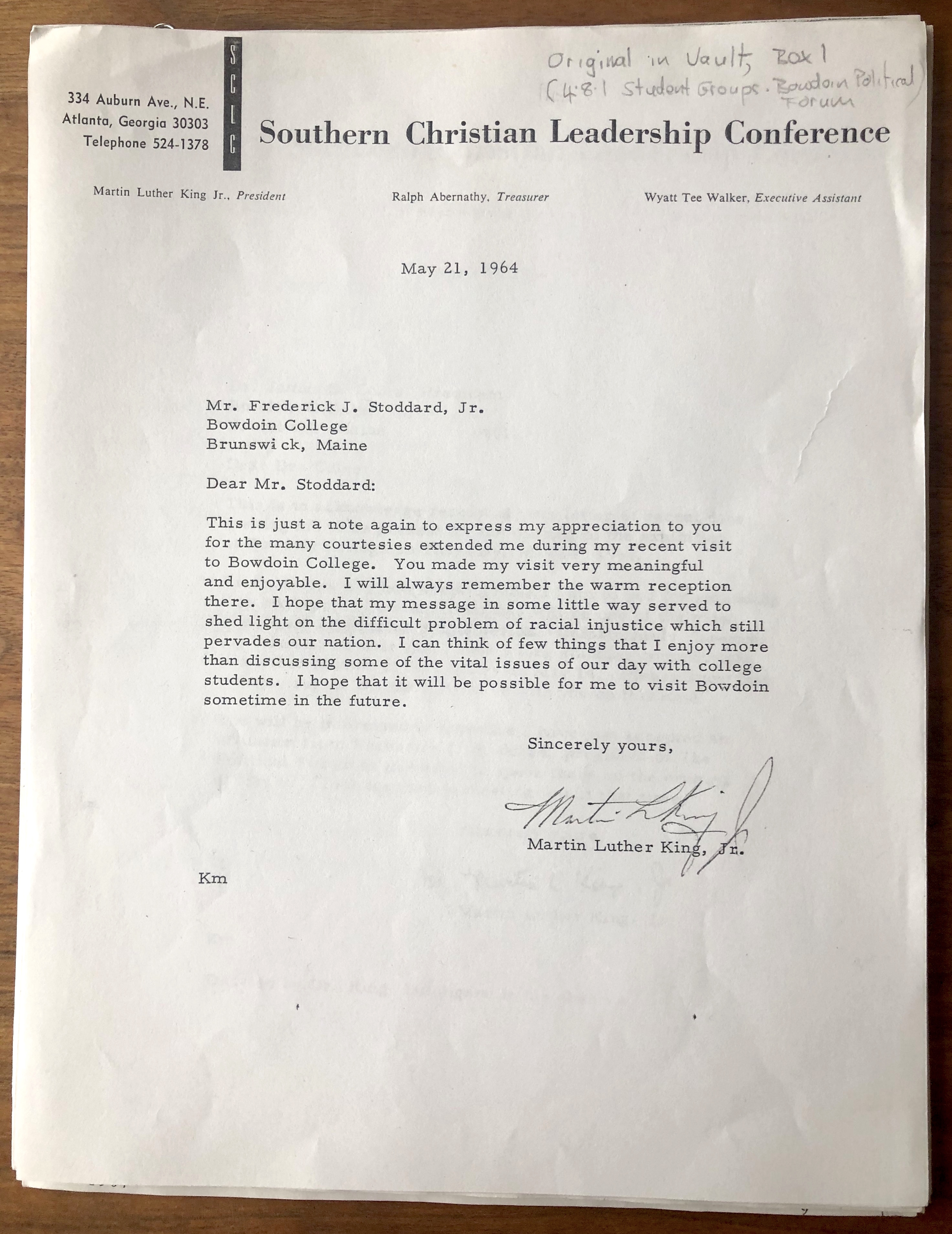
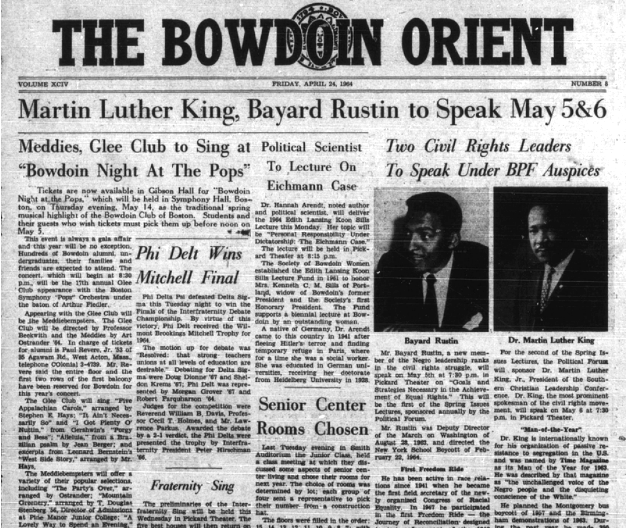
Click here for a transcript of this article on Bayard Ruskin and Dr. Martin Luther King at Bowdoin College
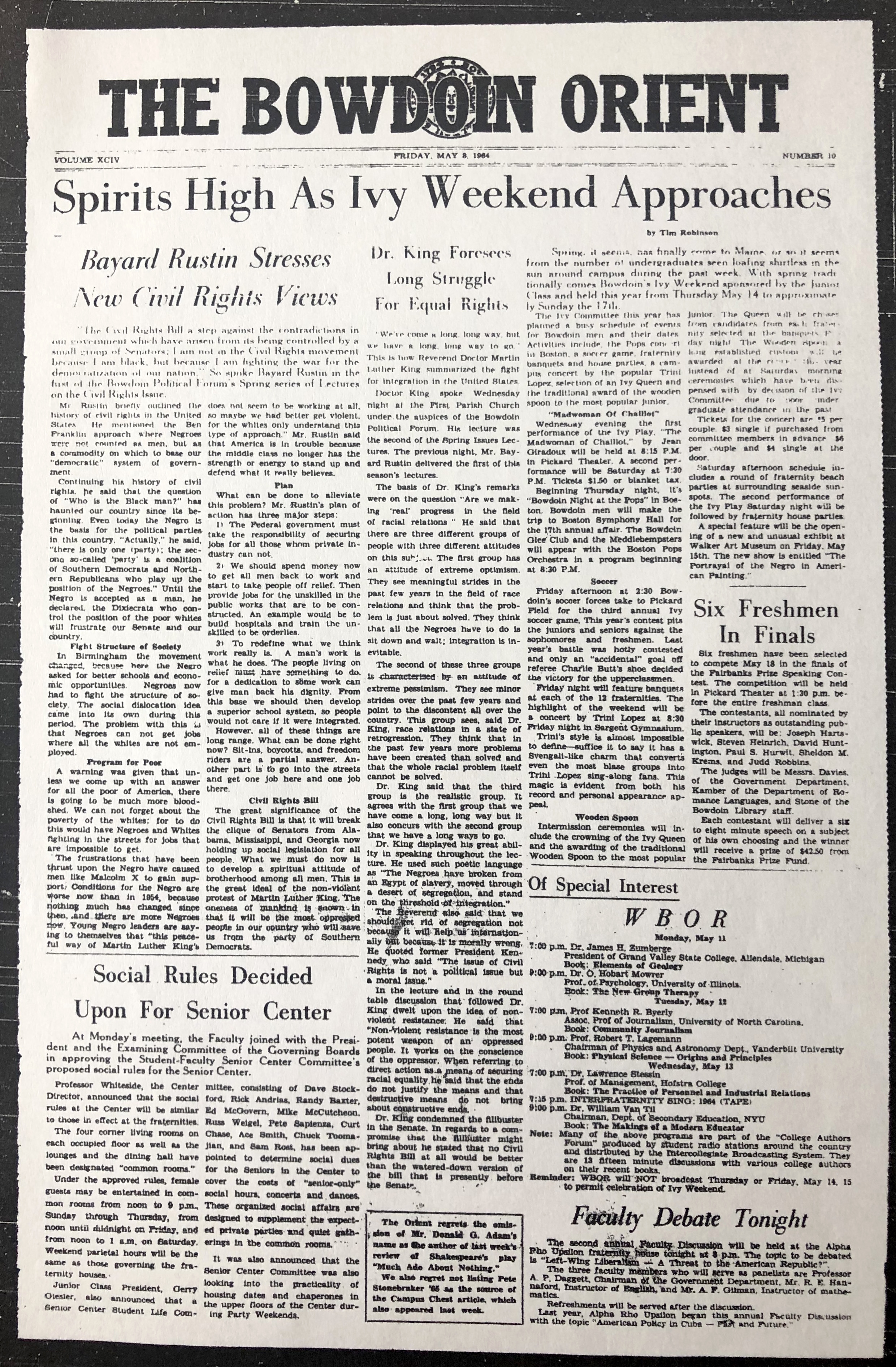
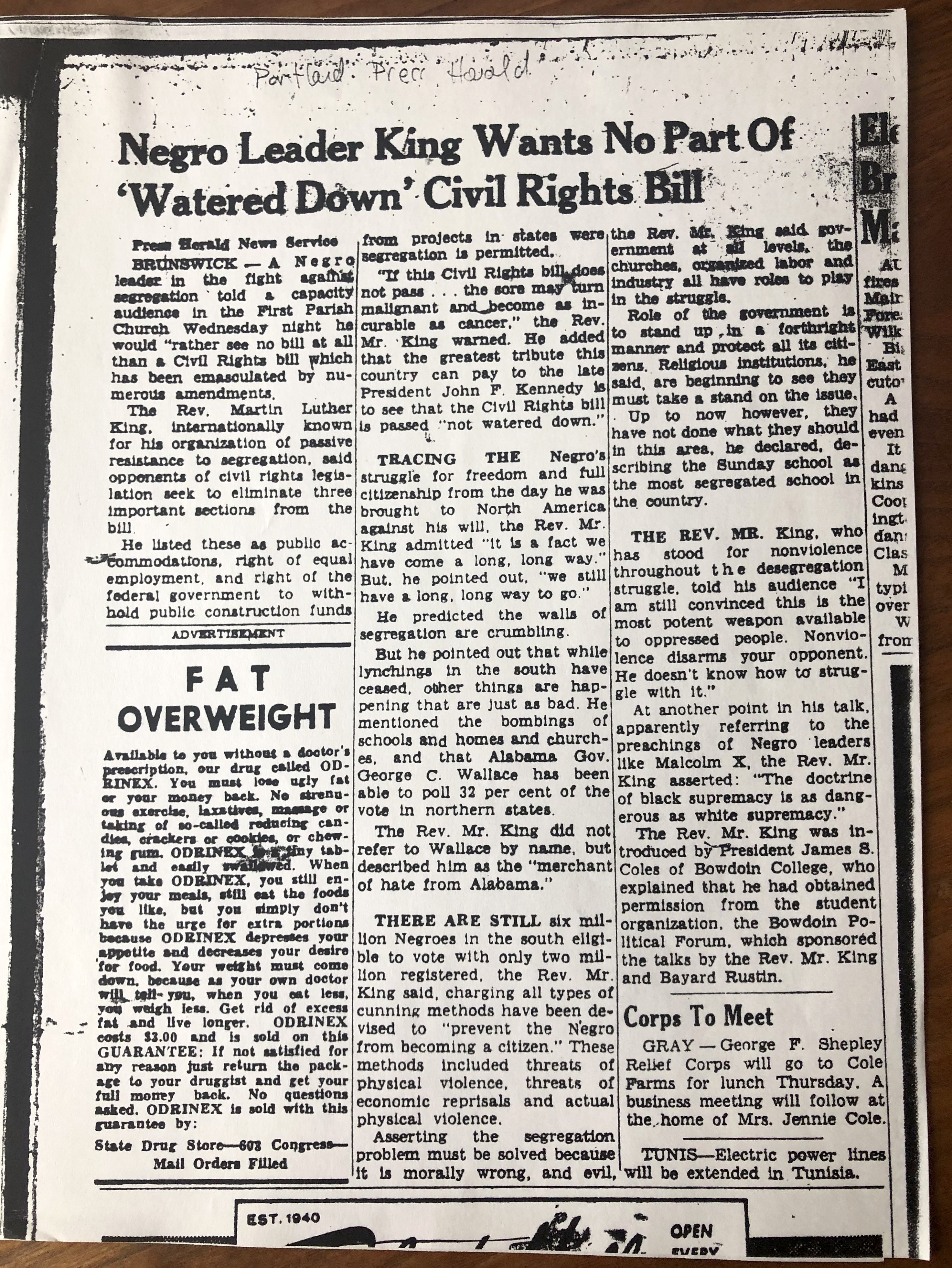
U.S. National Archives ~ a searchable collection of documents on the Civil Rights Movement
Digital Archive of The Brunswick Times Record through Curtis Memorial Library
The New York Times TimesMachine: A searchable archive of digitized issues of the New York Times published between 1851 and 2002. (login: djerome@brunswicksd.org / Dragons116!)
Google Newspaper Archive: free access to scanned archives of newspapers from the 1700’s to the 2000’s
Time Magazine Vault: Civil Rights Issues of Time Magazine
Infobase African-American Database: Free Trial until April 11, 2023 / Username: Brunswick04011 / Password: Dragons
Online King Records Access (OKRA) at the Martin Luther King, Jr. Research and Education Institute at Stanford University a searchable database giving you access to thousands of King documents through the year 1968
The Vault: FBI Records during the Civil Rights Movement, made possible by the FOIA (Freedom of Information Act)
The Library of Congress exhibition documents of events during the Civil Rights Movement in the United States, including thousands of personal stories, oral histories, and photographs collected by the “Voices of Civil Rights” project.
The Library of Congress Civil Rights History Project – Searchable collection of Primary Sources, especially interviews
Seminal Documents of the Civil Rights Movement, Listed Chronologically
Civil Rights Movement Database created and maintained by veterans of the Southern Freedom Movement (1951-1968) “to preserve and make available original-materials, histories, narratives, remembrances, and commentaries related to that movement. It is where we tell it like it was, the way we lived it, the way we saw it, the way we still see it.”
Southern Freedom Movement’s amazing Spreadsheet with links to all Civil Rights Movement Archives, Centers & Monuments
Pacifica Radio Archives: A living History ~ A searchable collection of radio broadcasts including the Civil Rights Movement
Credits:
https://dailysun.bowdoin.edu/2016/01/honoring-the-legacy-martin-luther-king-jr-speaks-at-bowdoin-in-1964/
https://www.bowdoin.edu/mlk/mlks-visit-to-bowdoin.html
https://web.bowdoin.edu/art-museum/fifty-years/index.html
What’s an Archives? | National Archives
